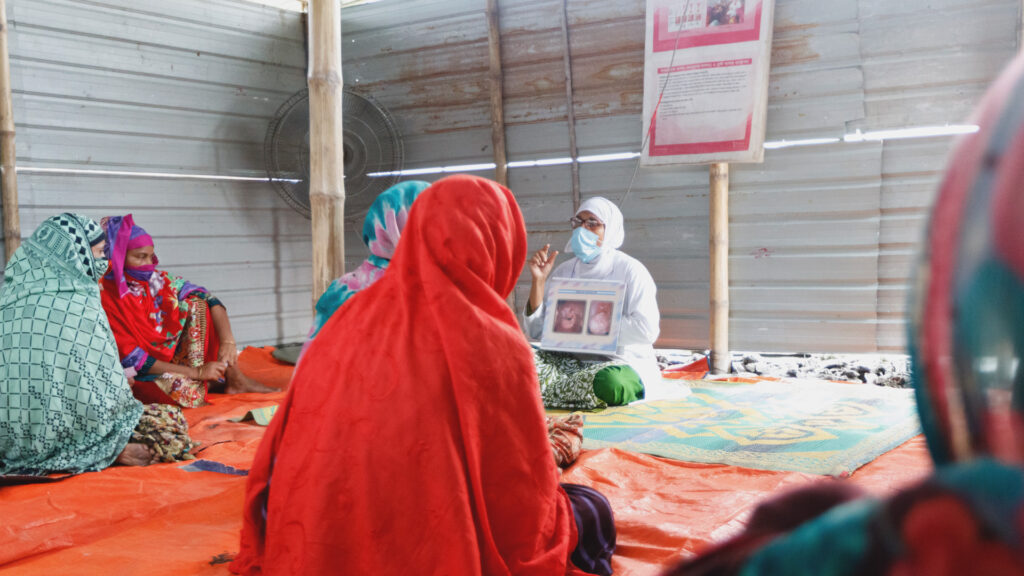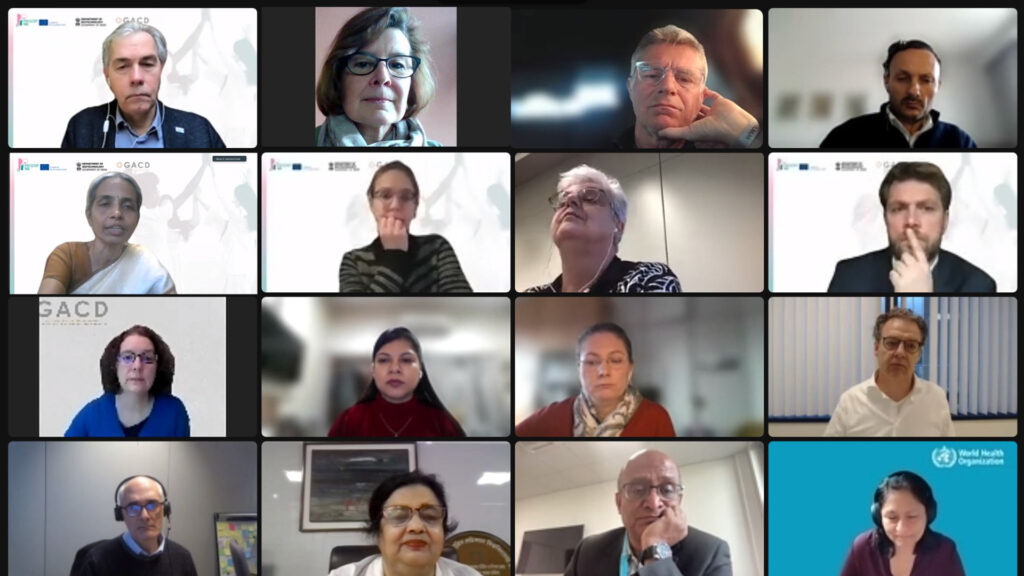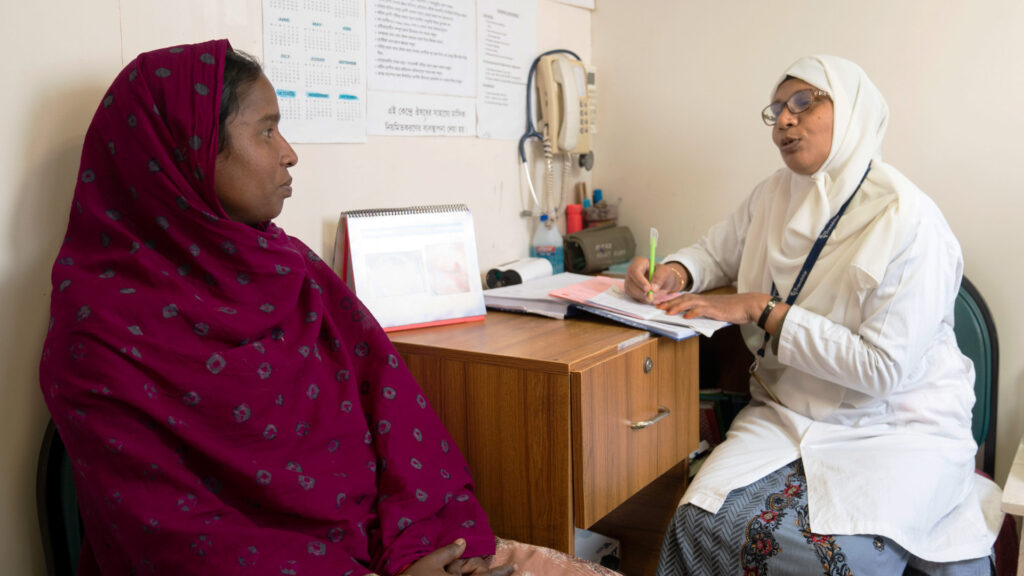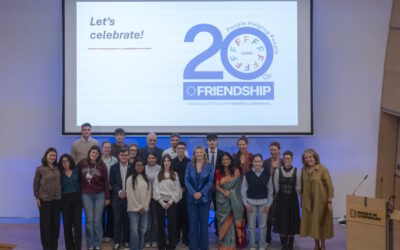The project ran from 2021-2024 with Friendship implementing in Bangladesh.

by Tahmeed Chaudhury
February 7, 2024
Partners of the Prevention and Screening Innovation Project Towards Elimination of Cervical Cancer (PRESCRIP-TEC) project, in association with the Global Alliance for Chronic Diseases (GACD), hosted a webinar on February 5 to wrap up the three-year-long project. A panel of researchers presented the key findings on cervical cancer from the project funded by the EU and the Government of India’s Department of Biotechnology that was active in Bangladesh, India, Uganda and Slovakia.
PRESCRIP-TEC was formally commenced in 2021, to research and explore efficient and innovative means of cervical cancer screening; increasing accessibility to screening and treatment for marginalised women living in hard-to-reach areas; and increasing awareness of cervical cancer at community levels. Cervical cancer is a major public health problem threatening women, especially in remote rural areas. Studies have shown that this form of cancer mostly results from the sexually transmitted Human Papilloma Virus (HPV).
Among the researchers’ findings, it has been observed that community sensitisation is key in increasing the tendency of screening because social stigma often deters women in rural societies from pursuing preventive measures. Dr. Ashrafunnesa, professor at the Department of Gynecological Oncology, Bangabandhu Sheikh Mujib Medical University, Bangladesh, stressed the need to develop community awareness to motivate both women and their families. “Marginalised women tend to neglect their situations largely because they do not have their husband’s or in-laws’ approval,” she said.

It has also been found that women prefer self-testing over being screened by medical professionals. Dr Jelle Stekelenburg, professor of International Aspects of Reproductive Health at the University Medical Centre Gronigen and a PRESCRIP-TEC consortium member, feels screening should be made convenient and accessible for women. “HPV self-sample testing increases uptake to over 90%, as it is convenient and offers the option of self-testing. We need to ensure awareness campaigns are scaled as well, to motivate women to take up screening and come to the clinic for follow-ups,” she said.
Furthermore, researchers identified Artificial Intelligence as a promising technology to assist health workers who provide screening, prevention and treatment to patients. They have also recommended that the costs of testing must be reduced to make it affordable in low- to middle-income countries.
“We are working in tandem with our partners to enhance cervical cancer research, screening, prevention and cure,” said Dr. Maribel Almonte, implementation scientist of Early Detection, Prevention and Infections of the Cervical Cancer Elimination Initiative at the World Health Organization. “We are also working towards making testing affordable in middle- and lower-income countries, as well as preparing a policy in relation to the use of AI technology in testing and decision making.” She has called on all stakeholders of the PRESCRIP-TEC project to continue to collaborate.

Friendship implemented the PRESCRIP-TEC project in Bangladesh, in cooperation with the International Centre for Diarrhoeal Disease Research, Bangladesh (icdd,b). The social-purpose organisation’s focus is on reaching the most hard-to-reach areas through improved availability, acceptability and quality of services was instrumental in implementing a cervical cancer screening and treatment programme in two static clinics in Gaibandha and Kurigram districts, its floating hospital EFH, and at the Friendship Hospital Shyamnagar (FHS).
Friendship introduced self-swab collection for women aged between 30 and 60 and uses advanced technology to test those swabs in labs to screen and identify pre-cancer and complicated cases. Affected patients are treated with thermal ablation, while more complicated cases and those confirmed to have cervical cancer are referred for advanced treatment.
The webinar was attended by all members of the global PRESCRIP-TEC consortium, including representatives from Friendship, icddr,b, GACD, WHO, Erasmus MC and the European Commission among others.



